Subtitle "Afrikaans" was produced by machine.Subtitle "አማርኛ" was produced by machine.Subtitle "العربية " was produced by machine.Subtitle "Ārāmāyâ" was produced by machine.Subtitle "azərbaycan dili " was produced by machine.Subtitle "беларуская мова " was produced by machine.Подзаглавието "България" е създадено от машина.সাবটাইটেল "বাংলা " মেশিন দ্বারা তৈরি করা হয়েছিল।Subtitle "བོད་ཡིག" was produced by machine.Subtitle "босански" was produced by machine.Subtitle "català" was produced by machine.Subtitle "Cebuano" was produced by machine.Subtitle "ગુજરાતી" was produced by machine.Subtitle "corsu" was produced by machine.Podtitul "Čeština" byl vytvořen automaticky.Subtitle "Cymraeg" was produced by machine.Subtitle "Dansk" was produced by machine.Untertitel "Deutsch" wurde maschinell erzeugt.Subtitle "Untertitel" was produced by machine.Ο υπότιτλος "Ελληνικά" δημιουργήθηκε αυτόματα.Subtitle "English" was produced by machine.Subtitle "Esperanto" was produced by machine.El subtítulo "Español" se generó automáticamente.Subtitle "Eesti" was produced by machine.Subtitle "euskara" was produced by machine.Subtitle "فارسی" was produced by machine.Subtitle "Suomi" was produced by machine.Le sous-titrage "Français" a été généré automatiquement.Subtitle "Frysk" was produced by machine.Subtitle "Gaeilge" was produced by machine.Subtitle "Gàidhlig" was produced by machine.Subtitle "Galego" was produced by machine.Subtitle "Schwizerdütsch" was produced by machine.Subtitle "هَوُسَ" was produced by machine.Subtitle "Ōlelo Hawaiʻi" was produced by machine.Subtitle "עברית" was produced by machine.Subtitle "हिन्दी" was produced by machine.Subtitle "Mẹo" was produced by machine.Subtitle "Hrvatski" was produced by machine.Subtitle "Kreyòl ayisyen " was produced by machine.Subtitle "Magyar" was produced by machine.Subtitle "Հայերեն" was produced by machine.Subtitle "Bahasa Indonesia " was produced by machine.Subtitle "Asụsụ Igbo " was produced by machine.Textun"Íslenska" var framkvæmt vélrænt.Sottotitoli "Italiano" sono stati generati automaticamente.字幕は"日本語" 自動的に生成されました。Subtitle "Basa Jawa" was produced by machine.Subtitle "ქართული" was produced by machine.Subtitle "қазақ тілі " was produced by machine.Subtitle "ភាសាខ្មែរ" was produced by machine.Subtitle "ಕನ್ನಡ" was produced by machine.Subtitle "한국어" was produced by machine.Subtitle "कोंकणी語" was produced by machine.Subtitle "کوردی" was produced by machine.Subtitle "Кыргызча" was produced by machine.Subtitle " lingua latina" was produced by machine.Subtitle "Lëtzebuergesch" was produced by machine.Subtitle "Lingala" was produced by machine.Subtitle "ພາສາ" was produced by machine.Subtitle "Lietuvių" was produced by machine.Subtitle "Latviešu" was produced by machine.Subtitle "fiteny malagasy" was produced by machine.Subtitle "te reo Māori" was produced by machine.Subtitle "македонски јазик" was produced by machine.Subtitle "malayāḷaṁ" was produced by machine.Subtitle "Монгол хэл" was produced by machine.Subtitle "मराठी" was produced by machine.Subtitle "Bahasa Malaysia" was produced by machine.Subtitle "Malti" was produced by machine.Subtitle "မြန်မာစာ " was produced by machine.Subtitle "नेपाली" was produced by machine.Ondertitels "Nederlands" machinaal geproduceerd.Subtitle "Norsk" was produced by machine.Subtitle "chiCheŵa" was produced by machine.Subtitle "ਪੰਜਾਬੀ" was produced by machine.Podtytuł "Polska" został utworzony przez maszynę.Subtitle "پښتو" was produced by machine.Legenda "Português" foi gerada automaticamente.Subtitle "Română" was produced by machine.Subtitle "Язык жестов (Русский)" was produced by machine.Субтитры "Pусский" были созданы машиной.Subtitle "Kinyarwanda" was produced by machine.Subtitle "सिन्धी" was produced by machine.Subtitle "Deutschschweizer Gebärdensprache" was produced by machine.Subtitle "සිංහල" was produced by machine.Subtitle "Slovensky" was produced by machine.Subtitle "Slovenski" was produced by machine.Subtitle "gagana fa'a Samoa" was produced by machine.Subtitle "chiShona" was produced by machine.Subtitle "Soomaaliga" was produced by machine.Titra "Shqip" u krijua automatikisht.Subtitle "србски" was produced by machine.Subtitle "Sesotho" was produced by machine.Subtitle "Basa Sunda" was produced by machine.Undertext "Svenska" är maskinell skapad.Subtitle "Kiswahili" was produced by machine.Subtitle "தமிழ்" was produced by machine.Subtitle "తెలుగు" was produced by machine.Subtitle "Тоҷикй" was produced by machine.Subtitle "ภาษาไทย" was produced by machine.ንኡስ ኣርእስቲ "ትግርኛ" ብማሽን እዩ ተፈሪዩ።Subtitle "Türkmençe" was produced by machine.Subtitle "Tagalog" ay nabuo sa pamamagitan ng makina.Altyazı "Türkçe" otomatik olarak oluşturuldu.Subtitle "татар теле" was produced by machine.Subtitle "Українська " was produced by machine.ذیلی عنوان "اردو" مشین کے ذریعہ تیار کیا گیا تھا۔Subtitle "Oʻzbek" was produced by machine.Phụ đề được tạo bởi máy.Subtitle "Serbšćina" was produced by machine.Subtitle "isiXhosa" was produced by machine.Subtitle "ייִדיש" was produced by machine.Subtitle "Yorùbá" was produced by machine.Subtitle "中文" was produced by machine.Subtitle "isiZulu" was produced by machine.
kla.TV accepts no liability for defective translation.kla.TV accepts no liability for defective translation.kla.TV accepts no liability for defective translation.kla.TV accepts no liability for defective translation.kla.TV accepts no liability for defective translation.kla.TV accepts no liability for defective translation.kla.TV не носи отговорност за некачествен превод.অপর্যাপ্ত অনুবাদের জন্য kla.TV কোন দায় বহন করে না।kla.TV accepts no liability for defective translation.kla.TV accepts no liability for defective translation.kla.TV accepts no liability for defective translation.kla.TV accepts no liability for defective translation.kla.TV accepts no liability for defective translation.kla.TV accepts no liability for defective translation.kla.TV nenese žádnou odpovědnost za chybné překlady.kla.TV accepts no liability for defective translation.kla.TV accepts no liability for defective translation.kla.TV übernimmt keine Haftung für mangelhafte Übersetzung.kla.TV accepts no liability for inadequate translationΗ kla.TV δεν φέρει καμία ευθύνη για ανεπαρκή μετάφραση.kla.TV accepts no liability for defective translation.kla.TV accepts no liability for defective translation.kla.TV no se hace responsable de traducciones incorrectas.kla.TV accepts no liability for defective translation.kla.TV accepts no liability for defective translation.kla.TV accepts no liability for defective translation.kla.TV accepts no liability for defective translation.kla.TV n'assume aucune responsabilité en cas de mauvaise traduction.kla.TV accepts no liability for defective translation.kla.TV accepts no liability for defective translation.kla.TV accepts no liability for defective translation.kla.TV accepts no liability for defective translation.kla.TV accepts no liability for defective translation.kla.TV accepts no liability for defective translation.kla.TV accepts no liability for defective translation.kla.TV accepts no liability for defective translation.kla.TV accepts no liability for defective translation.kla.TV accepts no liability for defective translation.kla.TV accepts no liability for defective translation.kla.TV accepts no liability for defective translation.kla.TV nem vállal felelősséget a hibás fordításértkla.TV accepts no liability for defective translation.kla.TV accepts no liability for defective translation.kla.TV accepts no liability for defective translation.kla.TV tekur enga ábyrgð á áræðanleika þýðingarinnarKla.TV non si assume alcuna responsabilità per traduzioni lacunose e/o errate.Kla.TV は、不適切な翻訳に対して一切の責任を負いません。kla.TV accepts no liability for defective translation.kla.TV accepts no liability for defective translation.kla.TV accepts no liability for defective translation.kla.TV accepts no liability for defective translation.kla.TV accepts no liability for defective translation.kla.TV accepts no liability for defective translation.kla.TV accepts no liability for defective translation.kla.TV accepts no liability for defective translation.kla.TV accepts no liability for defective translation.kla.TV accepts no liability for defective translation.kla.TV accepts no liability for defective translation.kla.TV accepts no liability for defective translation.kla.TV accepts no liability for defective translation.kla.TV accepts no liability for defective translation.kla.TV accepts no liability for defective translation.kla.TV accepts no liability for defective translation.kla.TV accepts no liability for defective translation.kla.TV accepts no liability for defective translation.kla.TV accepts no liability for defective translation.kla.TV accepts no liability for defective translation.kla.TV accepts no liability for defective translation.kla.TV accepts no liability for defective translation.kla.TV accepts no liability for defective translation.kla.TV accepts no liability for defective translation.kla.TV accepts no liability for defective translation.kla.TV aanvaardt geen aansprakelijkheid voor foutieve vertalingen.kla.TV accepts no liability for defective translation.kla.TV accepts no liability for defective translation.kla.TV accepts no liability for defective translation.kla.TV nie ponosi odpowiedzialności za wadliwe tłumaczenie.kla.TV accepts no liability for defective translation.kla.TV não se responsabiliza por traduções defeituosas.kla.TV accepts no liability for defective translation.kla.TV accepts no liability for defective translation.kla.TV не несет ответственности за некачественный перевод.kla.TV accepts no liability for defective translation.kla.TV accepts no liability for defective translation.kla.TV accepts no liability for defective translation.kla.TV accepts no liability for defective translation.kla.TV accepts no liability for defective translation.kla.TV accepts no liability for defective translation.kla.TV accepts no liability for defective translation.kla.TV accepts no liability for defective translation.kla.TV accepts no liability for defective translation.kla.TV nuk mban asnjë përgjegjësi për përkthime joadekuate.kla.TV accepts no liability for defective translation.kla.TV accepts no liability for defective translation.kla.TV accepts no liability for defective translation.Kla.TV tar inget ansvar för felaktiga översättningar.kla.TV accepts no liability for defective translation.kla.TV accepts no liability for defective translation.kla.TV accepts no liability for defective translation.kla.TV accepts no liability for defective translation.kla.TV accepts no liability for defective translation.kla.TV ንዝኾነ ጉድለት ትርጉም ዝኾነ ይኹን ሓላፍነት ኣይቅበልን እዩ።kla.TV accepts no liability for defective translation.kla. Walang pananagutan ang TV sa mga depektibong pagsasalin.kla.TV hatalı çeviriler için hiçbir sorumluluk kabul etmez.kla.TV accepts no liability for defective translation.kla.TV accepts no liability for defective translation.kla.TV عیب دار ترجمہ کے لیے کوئی ذمہ داری قبول نہیں کرتا ہے۔kla.TV accepts no liability for defective translation.Kla. TV không chịu trách nhiệm về bản dịch không đầy đủ.kla.TV accepts no liability for defective translation.kla.TV accepts no liability for defective translation.kla.TV accepts no liability for defective translation.kla.TV accepts no liability for defective translation.kla.TV accepts no liability for defective translation.kla.TV accepts no liability for defective translation.
This is a modal window.
The media could not be loaded, either because the server or network failed or because the format is not supported.
Swiss expert on international conflict resolution: How did the Ukraine war start?
21.05.2022
www.kla.tv/22587
In an interview at the beginning of March 2022, Jacques Baud, a Swiss expert on international conflict solutions, shed light on the historical, political, military and economic background to the war in Ukraine. As former head of “Peace Policy and Doctrine” of the UN Department of Peace Operations, he raised the question: How did one get to this point of starting a war?
[continue reading]
Swiss expert on international conflict resolution: How did the Ukraine war start?
Download broadcast and attachments in the wanted quality: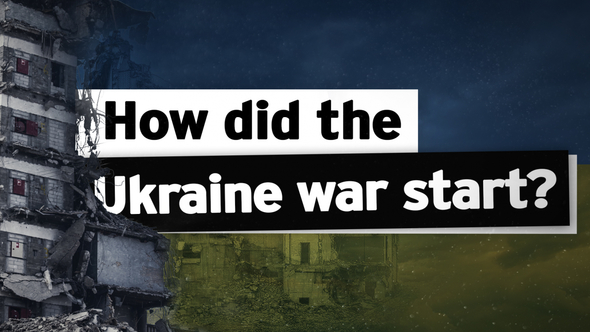
Hashtags: #USA-en
Useage rights:
Standard-Kla.TV-Licence
Topics A-Z
Enter a word for search or use the alphabetic search-order

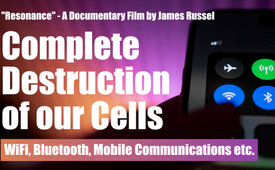
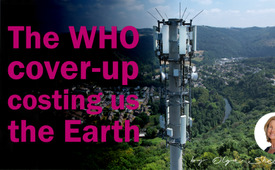
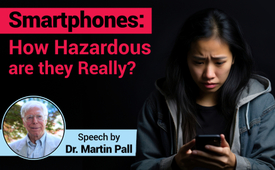
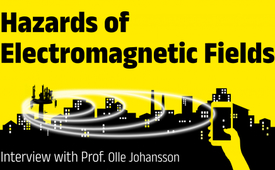
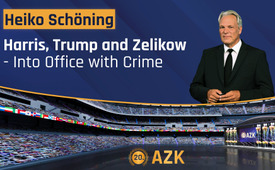
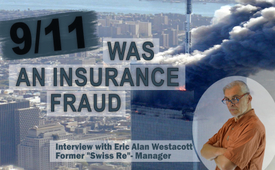
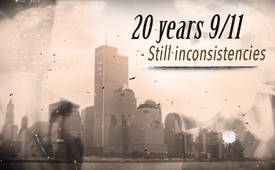
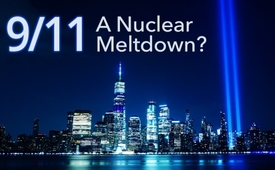



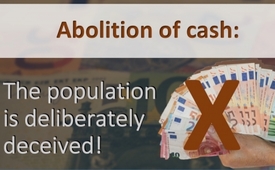
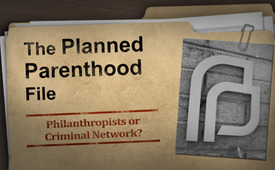
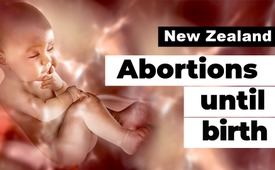
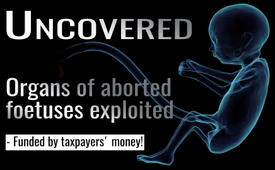
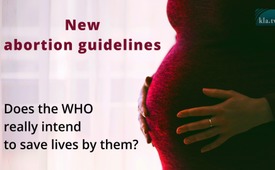

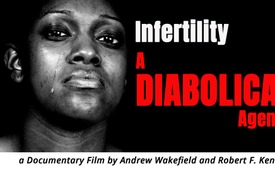

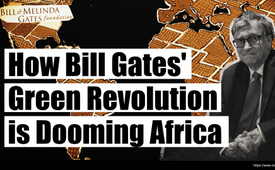



21.05.2022 | www.kla.tv/22587
Historical current events uncensored! Unheard things made heard! With the new Kla.TV podcast, historical events are currently and internationally documented. An echo of the times in smart format you can listen to, any time, any place. Kla.TV podcast today – gets in your ear and changes the world! Swiss expert on international conflict solutions: How did the Ukraine war start? In an interview at the beginning of March 2022, Jacques Baud, a Swiss expert on international conflict solutions, clarified the historical, political, military, and economic backgrounds of the war in Ukraine. As former head of "Peace Policy and Doctrine" of the UN Department of Peace Operations, he raised the question: How did one get to this point of making war? As of early March 2022, Baud provides a clear counter-voice to the depiction of the leading media, despite somersaulting events, and thus most important aspects for an overall picture. This broadcast shares the essential statements of his interview in a highly condensed form. Russia wants a distance from NATO The core element of NATO is US nuclear power. Thus, MK-41 missile systems are being deployed in Poland and Romania, which are declared as defensive weapons but can also be equipped with nuclear warheads. Missiles fired from these ramps reach Moscow within minutes. In a situation of amplified tension, if the Russians notice from satellite images that there is activity at the launch pads and that an attack is being prepared, will they wait until nuclear missiles are launched? Just in case of possible mistakes, a certain reaction time, i.e. a greatest possible distance is always needed. What prompted Putin to intervene militarily? The districts of Luhansk and Donetsk, located in Eastern Ukraine, declared autonomy in 2014. The population is predominantly Russian. Since 2014, according to OSCE observers, Western Ukraine bombarded those locations repeatedly and used heavy artillery, despite the Minsk peace and de-escalation agreement. Thousands of Russians, including hundreds of children, have been brutally killed in this process over the past eight years. Since 12 February 2022 and according the OSCE report, the bombing of towns in the Donbas has tremendously intensified. This major offensive by the Ukrainian military triggered it all. Therefore, the evacuation of the civilian population to Russia had to begin. Shortly afterwards, the Russian foreign minister spoke of 100,000 refugees. In March 2021, the Ukrainian President Zelensky had issued a decree to forcefully annex Crimea to Ukraine and had mobilized his troops. In this situation, Putin had little choice but to take up his responsibility under international law towards the civilian population in the Donbas, among them many Russians. Putin had no intention of attacking Ukraine militarily until recently In his background report on the Ukraine war, Jaques Baud points out that Russian President Putin had no intention of attacking Ukraine until mid-February 2022. What made Putin change his mind so radically within just a few days? On the one hand, the dramatically escalating bombing of the cities in the Donbas by the Ukrainian army since 11/12 February 2022 and undoubtedly, a decree issued by Ukrainian President Zelensky on 24 March 2021 to reconquest Crimea by Ukraine. In this context, conspicuous relocation of large parts of the Ukrainian army took place South and South-East towards the Donbas in the following months. This was closely observed by Russia and taken as a direct threat to the predominantly Russian-speaking population there. This was amplified by the Ukrainian government's strict refusal to respect the Minsk Agreement with Russia which aimed at de-escalating the situation. What set off all the alarms in Russia, however, was Zelensky's blunt declaration at the latest Munich Security Conference stating that the Ukrainian armed forces were meant to be supplied with proper nuclear launchers. In the interest of his country, Putin could not accept this imminent threat, apparently incited by the US government. The persistent roots of right-wing extremism in Ukraine According to Reuters, there are strong paramilitary associations of right-wing extremists in Ukraine, totaling about 100,000 men. The well-known Azov Regiment consists of 19 nationalities, including French, even Swiss. The roots of the pronounced right-wing extremism go back to the 1930s. The Stalin regime had confiscated crops to modernize the USSR, provoking an unprecedented famine in Ukraine. Millions of Ukrainians died. Hatred arose against communists, Russians and especially Jews, who held high command posts in Stalin's modernization process. In World War II, Ukrainians regarded the German Wehrmacht as liberators and allied themselves with it. After World War II, the USA, France and Great Britain supported Ukrainian right-wing extremists in the fight against the Soviet Union which was still seen as an enemy. Today, the weakness of the Ukrainian army leads Kiev to resort to these right-wing extremist associations. Demilitarization and denazification of Ukraine According to Baud’s assessment, Putin never intended to harm the civilian population when he attacked Ukraine (even if a different impression was created in the course of the war). That is why he never turned off the gas tap to Ukraine. One of his main conditions for an agreement with Ukraine was that Russia's security interests be unconditionally taken into account. Putin demands that Ukraine assumes a neutral status, that it neither becomes a member of NATO nor a nuclear missile systems station. Likewise, the radical right-wing paramilitaries, such as the Azov regiment with SS emblems, which act with unimaginable brutality alongside the Ukrainian military, are to be eliminated. As a result, Russian forces have primarily attacked military targets. On 4 March, 2022 the Russian army had suffered approximately twice as many casualties as Ukraine had suffered dead civilians. How the West wages wars In Baud's view, Russia's attack is not directed against the Ukrainian population and neither gas nor electricity nor water works are destroyed, but the West has an opposite strategy. When the Americans attacked Iraq, Libya and many other countries, they first destroyed the electricity and water supply and the entire infrastructure and bombed the population. Why is the West proceeding like this? The strategists assume that if you destroy the infrastructure, there will be an upheaval among the population against the government or the dictator and you will get rid of him that way. That as well was the strategy during the Second World War, when German cities like Cologne, Berlin, Hamburg or Dresden were bombed. They aimed directly at the civilian population, so there would be an upheaval. The theory of the military is that the attacked government loses its power through an upheaval. The attacker then wins the war without endangering his own troops. The misery of the population is no big deal for these strategists. Europe would be the battlefield in a nuclear war! American geostrategists have made it clear on several occasions that for more than 100 years, the US policy has focused on preventing a closer alliance between the two largest European powers, the financially strong and inventive Germany and the resourceful Russia, in order to remain ahead economically and politically. Consequently, the German post-war generation was instilled by the Western occupiers with a historical fear of the threatening Russians. Germany's current economic relations with Russia are also under massive attack from the US administration (see the constant wrecking of the Nordstream II pipeline for natural gas).Bearing this in mind, isn't the fueling of the Ukraine conflict already the deceitful threading of a devastating nuclear war in Europe? Definitely with the aim of weakening Europe (as it has been the case in WW1 and WW2) in order to allow the US administration to remain No. 1. Putin warns against the use of nuclear weapons After Macron's visit, Putin said unequivocally that he did not want to use nuclear weapons. However, if the distance between NATO and Russia were too short, this would inadvertently lead to complications. Things became critical on 11/12 February 2022 at the Security Conference in Munich, when the Ukrainian leader Zelensky declared, with the approval of the US administration, that he would acquire nuclear weapons and launchers. However, this had been ruled out in the Budapest Agreement of 1994. When NATO threatened to use nuclear missiles, Putin put his nuclear forces on Level 1 alert on 27 February 2022. But he made it clear that he would only use nuclear weapons in the most extreme case of defense. The EU game with Ukraine In autumn 2013, the EU urged Ukraine to conclude a trade and economic agreement with it. But it was not without problems, because the Ukrainian industry and agriculture worked closely with Russia. In terms of quality and products, Ukraine was oriented towards Russia and not towards Western standards. In terms of quality, Ukraine could hardly compete with the European market. For this reason, the Ukrainian government under Yanukovych wanted to conclude two agreements, one with Russia and one with the EU. But the EU, represented by Barroso, demanded that Ukraine choose between Russia and the EU. The Western-fueled Maidan coup in 2014 and the overthrowing of Yanukovych then drove the splitting wedge between Ukraine and Russia. Crimea’s struggle for independence In January 1991, while the Soviet Union was still in power, Crimea held a referendum to belong to Russia and no longer to Ukraine. This is how it became an autonomous Soviet republic. It is important to know that Crimea declared itself independent before Ukraine became independent. Crimea had its own constitution with its own authorities. At that time, the predominantly Russian-speaking Crimea did not consider itself part of Ukraine rather independent from it. But Ukraine did not accept this. In 1995, Ukraine overthrew Crimea's government with Special Forces and declared its constitution invalid. Through this illegal coup, Ukraine ruled Crimea. In 2014, due to the Maidan coup, the subsequent Odessa massacre and concerns about similar developments, another Crimean referendum took place in which the population asked to join Russia through their authorities. Therefore, the driving force for the annexation was not Russia, but the explicit wish of the Crimean population. Conclusion: Since mid-March, the situation in Ukraine has exploded, which means that the civilian population is very much under attack. Whether this is a controlled staging by the US administration, similar to the Maidan unrest in 2014, remains pure speculation for the time being. As a reminder, during the Maidan riots in 2014, a less visible third party, namely US-hired snipers, brought the situation to a boil by deadly shooting on both fronts. – However, in all the many discussions and struggles to get the overall picture, it is vital that we do not let ourselves be divided in the struggle for truth and justice, peace and freedom.
from hm; chr; gr; lex; pg; nis; uh